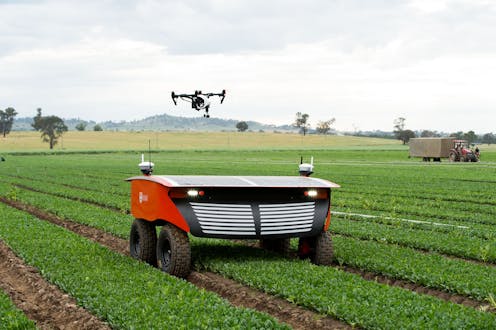How can Australia get cracking on emissions? The know-how we need is in our universities
- Written by Kim Rasmussen, Deputy Dean and Associate Dean, Research, Faculty of Engineering, University of Sydney

Australia has been slow to join[1] the global shift towards decarbonisation and lower emissions. Now, ready or not, the world is on the verge of a climate action crescendo. Australia can choose what to do next: act meaningfully and with determination; dither and have its hand forced; or, at worst, face punishing measures such as tariffs[2].
Despite our lumbering start, we are in a fortunate position. We do not need to start from scratch to green our economy and participate wholly in the decarbonisation revolution. While Australia debates “where to from here” as world leaders come together for COP26[3] in Glasgow, university researchers have long been heads down developing the very research, talent and technology we’ll need for this transformation.
Read more: Scott Morrison is hiding behind future technologies, when we should just deploy what already exists[4]
With the right mix of industry and government support, these university-developed resources will allow us to pivot to a decarbonised economy. Australia can emerge as a green export and research and development leader.
Across engineering and science, we’re witnessing a research and technology explosion. The once unimaginable is being made possible. We are seeing advances in many fields, including:
renewable and low-emission technologies
energy generation, utilisation and storage
electrification and network hybridisation
power fuels, including hydrogen.
With our abundant natural and mineral resources and agricultural industry, these are all areas in which Australia can and should lead to become a research and development exporter. Aside from helping to transition our economy and lower emissions, this would attract further overseas talent and investment.
Australia has an untapped opportunity to switch from being an exporter of carbon fuels to an exporter of green fuels. We can do this by converting solar and wind energy to stored energy like hydrogen. For domestic consumption, there is a wider range of energy-storage options including batteries and Snowy 2.0.

















